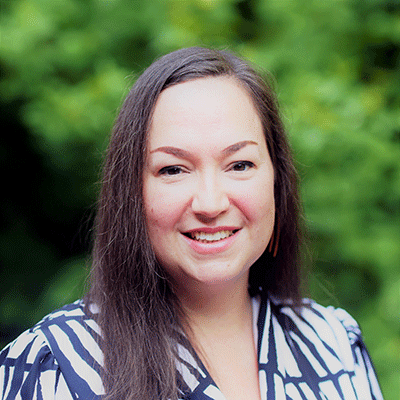New Degree Programs
A degree program is a defined, integrated course of study that leads to the award of a bachelor’s, master’s, professional, or doctoral degree, which is listed on the student diploma. New degree programs entail several levels of institutional review, and must also be approved by the State Council for Higher Education of Virginia (SCHEV), which requires clear and compelling evidence of industry/employer demand for the proposed degree. Depending on the nature of the proposed degree, it may also require review and approval by the Southern Association of Colleges and Schools Commission on Colleges (SACSCOC).
Programs are encouraged to consult with their school’s academic compliance contact and with the IRA contact listed below as early as possible for guidance and support on the necessary documentation and approvals the new degree would require.
The following form to initiate review of a new degree program includes detailed instructions for each field. Please note: You will not be able to ‘save’ and ‘return’ to the form at a later date, so we recommend that you preview and prepare the required information in advance:
New Degree Program Initiation Form
Please read below for additional guidance on the requirements, process and timeline for new degrees.
-
Guidelines for New Degree Programs
-
All degree programs must meet the following SACSCOC standards for the minimum total number of credits required for the degree:
Guidelines for New Degree Program Degree Level SACSCOC: Minimum Number of Credits Required by Degree Level Bachelor’s At least 120 credit hours Graduate The first degree (usually the master’s) must be at least 30 credit hours.
Any higher degrees should contain progressively more hours.
Per SCHEV requirements, every new degree program must include a common core of specific, individual courses that all students in the program will complete. The required # of credits in the core is calculated according to a set percentage of the total # of credits required for the degree:
Percentage of Number of Credits Required for Degree Degree Level SCHEV: Minimum % for Common Core by Degree Level Bachelor’s
25% of total credits, excluding general education
Master’s
50% of total credits
Doctoral
25% of total credits, excluding dissertation
-
Review and Approvals Process for New Degree Programs
-
IRA staff will advise and coordinate with the program lead(s) and the school’s academic compliance contact to manage process requirements, including providing relevant sample materials to guide the work. New degrees require the following approvals:
School Curriculum Committee & Dean: Programs should consult with their school’s designated academic compliance contact for guidance and support on necessary documentation and procedures. If the proposed degree may impact faculty, students, courses and/or academic programs in other UVA school(s), the sponsoring dean should consult with the corresponding dean(s).
Once the New Degree Program Initiation Form is submitted, IRA staff review the request, assist the sponsoring program in preparing all necessary documentation, including an appropriate assessment plan for the proposed degree, and obtain initial Provost approval from the Vice Provost for Academic Affairs (VPAA).
-
Upon initial VPAA approval, staff initiate Impact Review (IR), in which a committee of stakeholders (e.g. appointed school representatives, Financial Services, Library, University Registrar) are invited to review the proposal and offer comments/questions regarding possible impacts on their units. To save time, sponsoring programs and schools are encouraged to consult with other schools and/or units that may be impacted ahead of IR, so that any issues/concerns may be proactively surfaced and addressed.
Faculty Senate: For new degrees, faculty senate approval entails three levels of review:
-
Academic Affairs Committee (AAC): The AAC typically meets every 2 weeks over the fall and spring semesters. The AAC docket can fill up quickly, so programs are encouraged to secure the necessary school approvals in the semester preceding their target senate term, to allow adequate time for review.
-
Executive Council (ExCo): ExCo typically meets monthly over the Fall and Spring terms.
-
Faculty Senate: The Senate typically meets monthly over the Fall and Spring terms.
Upon Faculty Senate approval, IRA staff coordinate formal Provost, President, and Board of Visitors (BOV) approvals.
Upon BOV approval, IRA staff advise the sponsoring program on SCHEV requirements and coordinate formal SCHEV submissions and approvals.
If SACSCOC review is required, IRA staff will advise on SACSCOC requirements and coordinate formal SACSCOC submissions and approvals.
Notice of Formal Approval: Upon formal SCHEV approval (and SACSCOC, if required), IRA staff will circulate notice of formal approval to the school dean and relevant institutional stakeholders, including the University Registrar, to add the new degree to the Record and Student Information System
-
-
Timeline for New Degree Programs
-
New degree programs generally have an effective date in a fall term.
Institutional reviews (e.g., Faculty Senate, Board of Visitors) occur based on the bodies’ respective scheduled meetings during the academic year.
SCHEV has two cycles in which it considers new degree program proposals each year. Each cycle entails two steps: 1) Program Announcement; and 2) Program Proposal. Programs should allow at least The timeline for each cycle is as follows:
Spring Cycle
-
March 1: Program Announcement deadline
-
June 1: Program Proposal deadline
-
October: Program considered for SCHEV Council approval; if conferred, approval is effective the following spring.
Fall Cycle
-
September 1: Program Announcement deadline
-
December 15: Program Proposal deadline
-
May: Program considered for SCHEV Council approval; if conferred, approval is effective the following fall.
Students may not be admitted into a degree program until approvals are complete and the program has been created in the Student Information System.
-
Marketing and recruitment efforts for new degrees may not begin until SCHEV staff have forwarded the proposed degree to SCHEV Council for review, unless otherwise approved in advance by the Office of the Provost.
-
Contact
Alena Herklotz

